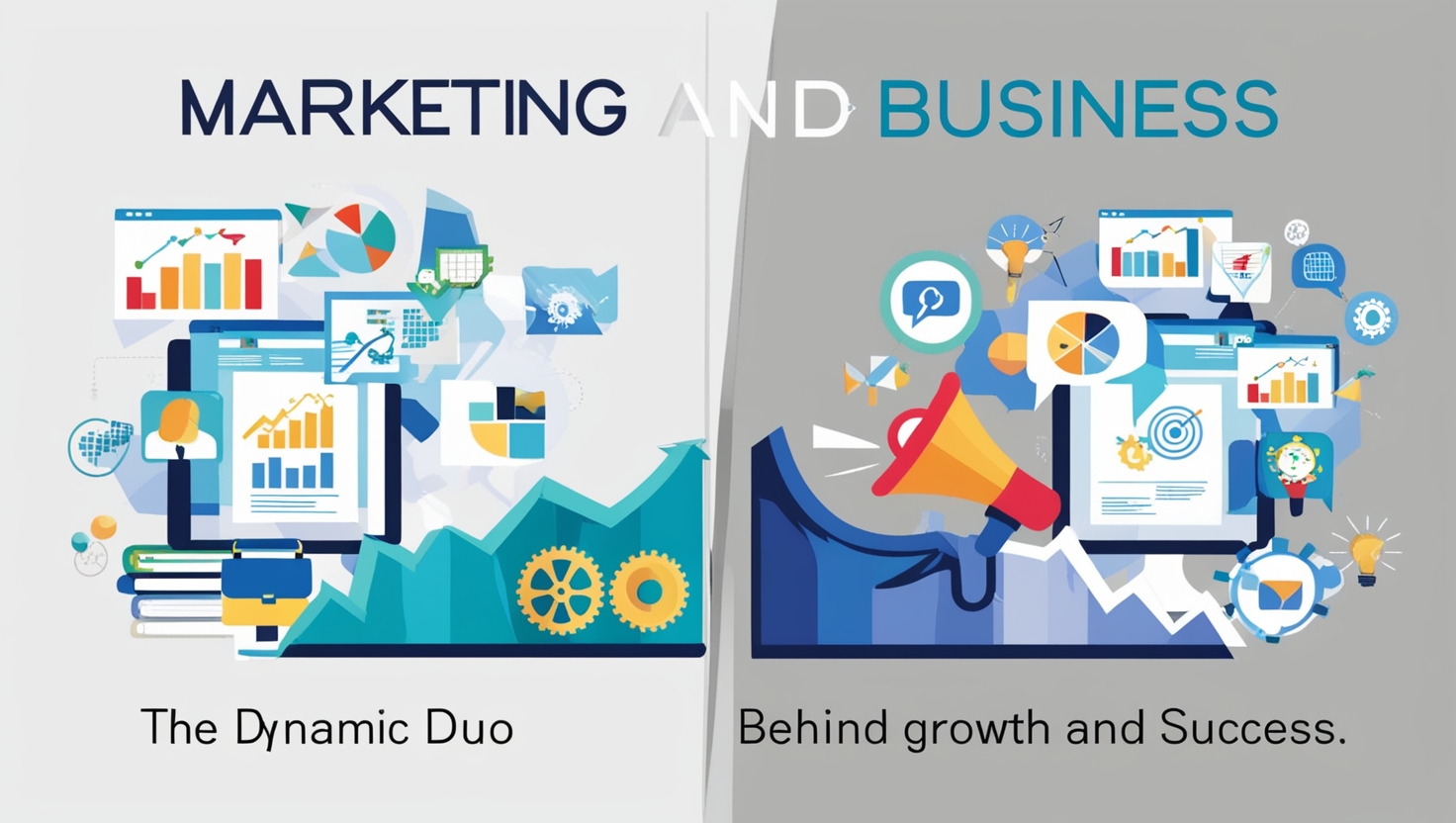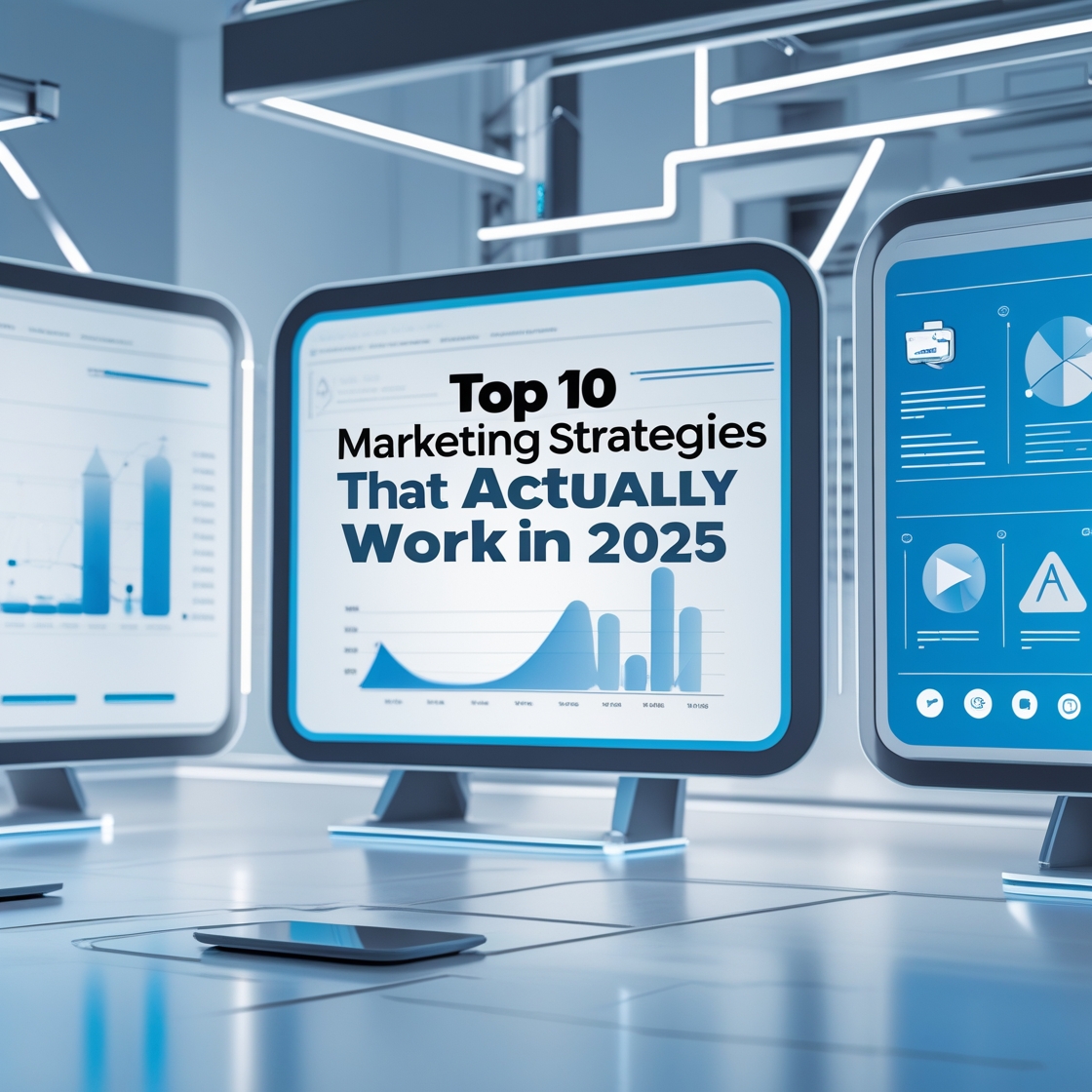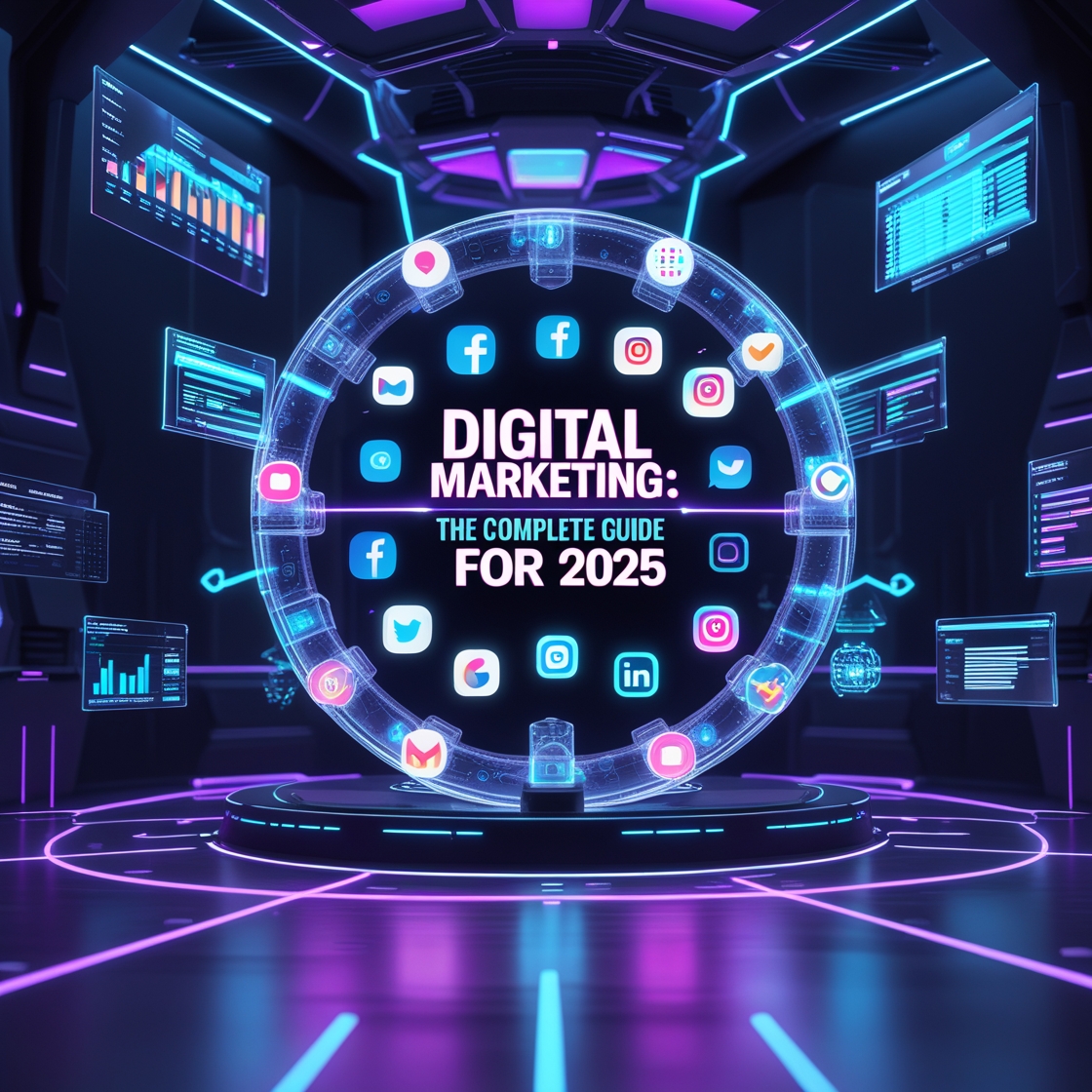In the increasingly competitive and speedy world, marketing and business work as a team. If you are starting up a new venture, operating a small back-street shop, or overseeing a multinational company, marketing is the gas that drives your business. The best products and services will not be recognized even without proper marketing. On the other hand, pure marketing cannot succeed without a solid business base.
This blog will explain how marketing and business go hand in hand, why marketing matters in business growth, and how to make your marketing strategy fit your business for long term success.
The Relationship Between Marketing and Business.

Marketing is not all about advertising. It involves everything that contributes to the promotion and sale of products or services – such as research, branding, pricing, distribution, customer engagement and more. Business is a more general term, which comprises planning, strategy, operations, finance, management, and everything that guarantees a company works effectively.
Key Differences and Connections
| Marketing | Business |
| Focuses on customer needs and market demand | Focuses on operations, growth, and profit |
| Involves branding, promotion, communication | Involves strategy, planning, finance, HR |
| Aims to attract and retain customers | Aims to build a sustainable, scalable organization |
| Dependent on creativity, analytics, and consumer psychology | Dependent on leadership, planning, and resource management |
When aligned correctly, marketing and business strategies create a powerful synergy that drives visibility, profitability, and growth.
Why Marketing Matters for Business Growth
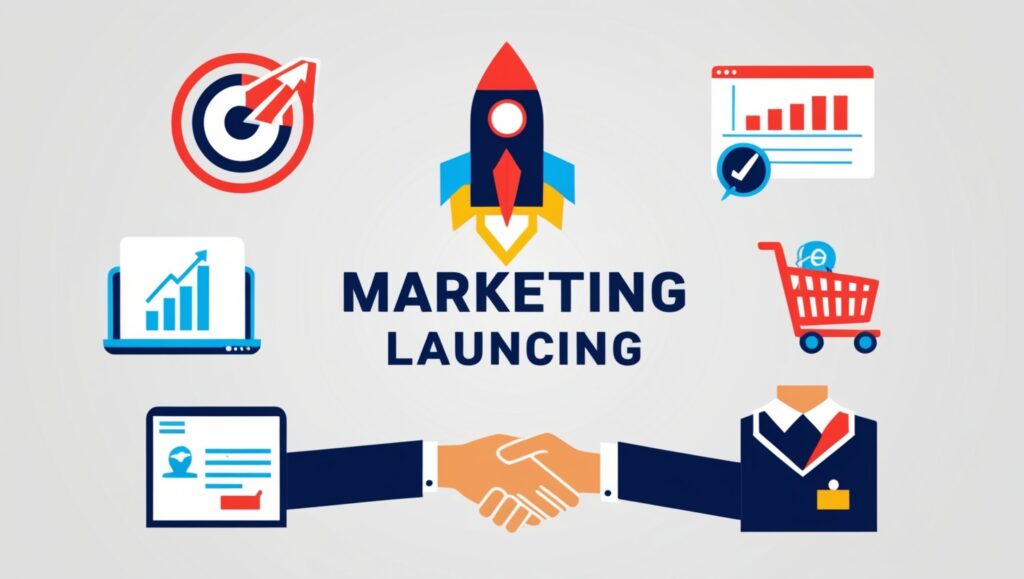
1. Creates Awareness
Making customers aware that you exist is the first step to having them. Using advertising, social media, SEO, email campaigns and content marketing, companies can get their brand to the rest of the world.
2. Builds Brand Identity
A constant message in promotions guides how people see your company. One way or another, whether through a logo, a tagline or a storytelling, branding creates trust and recognition.
3. Generates Leads and Sales
Marketing funnels takes potential consumers from awareness to action. Businesses are able to turn leads to loyal clients with the help of data-driven strategies.
4. Strengthens Customer Relationships
Marketing does not stop at a sale. Email newsletter, social media attention, and loyalty programs ensure that your audience remains hooked up and returns back for business.
5. Provides Market Insights
Positioning something well to sell is research – what customers desire, what the competition is doing, and how market trends move. These revelations can then be used to make better business decisions.
Kinds of Marketing That Make Business Successful
Different marketing strategies can be used dependent on the type and objectives of the business.
1. Digital Marketing
Includes search engine optimization, PPC, email marketing, social media. Perfect to capture large readership on the Internet.
2. Content Marketing
Concentrates on blogs, videos, podcasts, and guides. Assists in orientation of authority and teaching the audience.
3. Influencer Marketing
Utilizes people who have massive following online to market your products.
4. Traditional Marketing
Comprises print ads, TV, radio and bill boards. Still applicable to selected industries and local markets.
5. Experiential Marketing
It works to build real-life experiences in order to emotionally bond with customers.
Dependence of Marketing Strategies on Business Aims
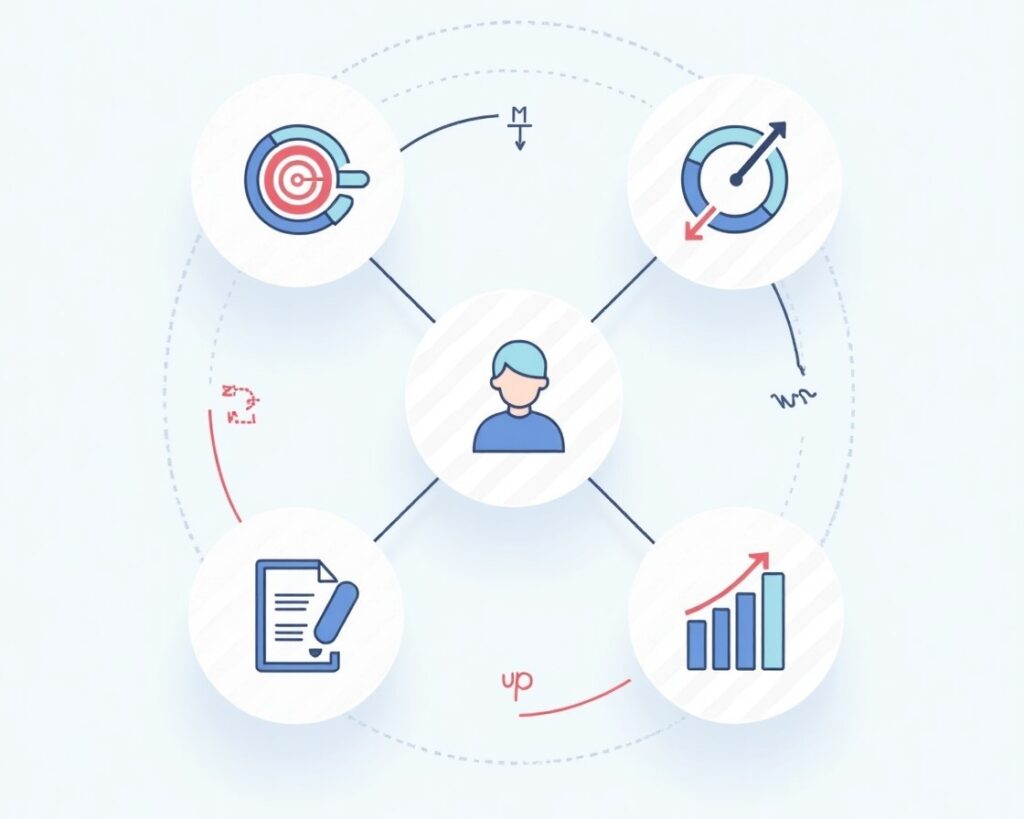
To optimize your marketing ambitions, they have to correspond to the general business strategy. Here’s how to do that:
1. Define Clear Business Objectives
Whether it’s to generate more revenue, access new markets or create brand awareness – your marketing plan should help you achieve these objectives.
2. Know Your Target Audience
Find out who your best customers are, where they are, and the problems they are having.
3. Set Measurable Marketing Goals
Employ KPIs such as website traffic, conversion rate, customer acquisition cost (CAC), return on investments (ROI).
4. Develop a Strong Value Proposition
What makes your business different? Ensure your make sure you’re marketing expresses your unique selling point (USP).
5. Use Data to Optimize
Monitor the results constantly and keep changing your strategies according to what works and what doesn’t work.
The Future of Marketing in Business
The marketing environment is constantly changing due to the ongoing improvements in technology and artificial intelligence as well as changing tastes of consumers. Here are some trends that will make the future:
- Personalization: Customized messages and offers enhance a customer experience.
- Voice and Visual Search: The way people are looking is different – marketing needs to adjust.
- AI and Automation: Marketing efforts are simplified by such tools as chatbots and predictive analytics.
- Sustainability and Ethics: People are making decisions based on values that resonate with them in terms of brands.
Companies that remain agile and accept these trends will stay ahead of the game.
Conclusion
The two sides of the coin are marketing and business. There is no business without marketing, and marketing with nothing behind it gets nowhere. When these two aspects are combined, a strong foundation for growth and innovation and future success arises.
Invest in both. Know your customers; establish your own brand; supply value; and align every campaign with your overarching business objective. No matter how the business world is in a constant state of flux, it is the consensus between marketing and business that will help to keep you on the forefront.











